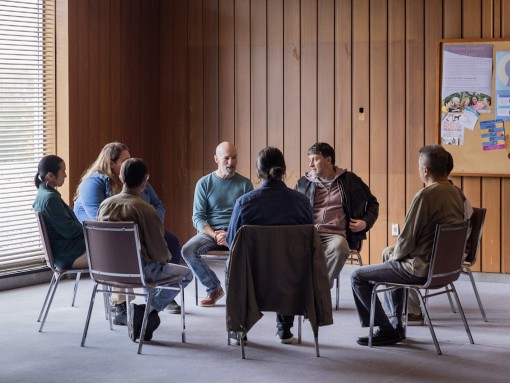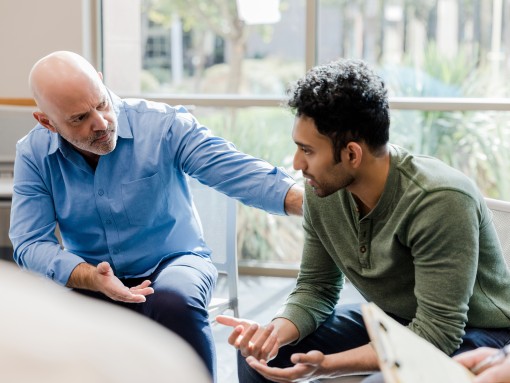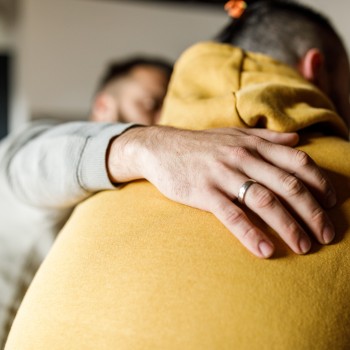Last updated on
Recovery can look different for everyone. Learn more about the variety of supports available.
It’s not easy to live with an addiction. It can be hard to talk about, and hard to know where to look for help. You might try one approach to treatment and find it doesn’t work at all for you—that’s okay, and it’s normal. There’s no one-size-fits-all treatment, and everyone’s path to recovery looks different. BC has a system of care that includes many different types of supports and treatments, so you can find what works for you.
If you’re not sure where to start, you can speak with a doctor or nurse at a clinic, or search for different supports near you. This article explores some of the types of treatment you’ll find available in BC.
Live-in Treatment
Live-in treatment programs (sometimes called residential treatment, "rehab", or just “beds”) offer a place for people to focus on their path to recovery. These facilities provide a structured environment where participants can focus on healing, without the distractions and triggers of everyday life. With trained staff and medical professionals on hand, residents can receive different types of care, including withdrawal management ("detox"), therapy and peer support. Live-in treatment may be a good fit for those who want a more intensive level of care and a supportive community to work on their substance use challenges.
Often, live-in treatment programs require a referral from a medical professional. You can visit a walk-in clinic, talk to a doctor through a virtual program, or try a Rapid Access Addiction Clinic to discuss whether live-in treatment will be a good fit for you.
Support Groups
Support groups create a space where people can share their experiences, challenges and triumphs with others who understand. Some groups meet in person, while others meet virtually. Some are open to anyone, while others serve specific people, like young people or workers in particular industry. Some are faith-based or spiritual, while others are not. These gatherings offer a sense of community and hope, reminding participants they are not alone in their journey towards recovery. Find support groups near you.
Counselling and Peer Support
Counselling and peer support services offer help tailored to the unique needs of each person. Trained counsellors provide guidance, empowering people to confront the root causes of their addiction and find paths to health. Peer support offers the knowledge and understanding that only lived experience can provide, as well as a shoulder to lean on. Together, these supports can provide hope and a path towards personal growth and healing. Find counselling supports near you.
Virtual Services
In an increasingly digital world, virtual services offer a lifeline to those seeking support for their substance use issues. Online counselling, therapy, and support groups are accessible from anywhere in the province. Virtual services can be a great help to people who might face barriers to seeking in-person services because of disability, location or a desire for privacy.
Replacement Therapy
Replacement therapy uses medications to replace addictive substances, treating the symptoms of withdrawal. It’s available for different types of addictions, but the best-known example is opioid agonist therapy, or OAT.
OAT uses medications like methadone and buprenorphine to help reduce cravings and symptoms of opioid use disorder. These medications are safer than unregulated drugs—they’re unlikely to be contaminated with unknown substances, and the strength and dosage is known. OAT is often combined with other sorts of therapy, like counselling or support groups, to help people make changes in their lives and their health. Find OAT near you.
You can also call the Opioid Treatment Access Line at 1-833-804-8111 to access OAT the same day.
Risk Reduction
Risk reduction (or "harm reduction") focuses on minimizing the negative consequences of substance use. Services like supervised injection sites and distribution of naloxone kits aim to help keep people safer in the here and now, even if they aren’t ready or able to seek treatment yet. These services prioritize safety and health while also offering hope for change. They are often a first step towards recovery.
Rapid Access Addiction Clinics
Rapid Access Addiction Clinics provide support for people who are ready to change how they're using substances right away. RAACs can help with harm reduction, access to supports and medicines such as OAT, and transitions to other long-term support programs. They aim to be available when they’re needed, with limited delays.
BC’s spectrum of support for substance use issues is grounded in the belief that recovery is possible for everyone. People are unique, and the journey to overcoming addiction is deeply personal. These various support systems, each with its own approach and strengths, ensure that hope is never out of reach.
- People working in the trades may face unique challenges. There are resources like the Construction Rehab Plan or Tailgate Toolkit that can provide support for people working in this industry.
- Women may benefit from women's-only spaces where they can connect and share in their lived experiences. Find resources specifically for women near you.
- Early insights tell us that there are factors that may be contributing to addiction challenges in the South Asian community. The South Asian Health Institute is dedicated to enhancing the health and wellness of South Asian individuals with culturally sensitive resources. Find health resources here.
- The Roshni Clinic provides substance use support to South Asian adults in the Fraser Health region including the Roshni Opioid Agonist Treatment Service.
- Language should never be a barrier to getting help. When contacting a health navigator at 8-1-1, feel free to request assistance in your first language for a more comfortable and understanding conversation.
If you or someone you know is struggling with substance use, there is a wide range of services available. These supports are here to remind you that, no matter the path you take, there is always hope for a brighter, healthier future. Reach out, seek help, and take the first step on your own unique journey to recovery.

Support Groups
Search HelpStartsHere for support groups. You can refine your search by location to find results near you, or use the filters to find online and virtual groups.

Counselling
Search HelpStartsHere for counselling supports. You can refine your search by location to find results near you, or use the filters to find telephone and virtual options.
Resources
Showing 9 Resources
Rapid Access Addiction Clinics (RAACs)
Rapid Access Addiction Clinics provide support for people who are ready to change how they're using substances.
Opioid Treatment Access Line
Provides confidential and same-day access to opioid agonist treatment medication for people throughout BC with opioid use disorder to prevent withdrawals, reduce cravings and the risk of overdoses.
People can call the access line to speak with a doctor or nurse over the phone who can prescribe the medication and offer connections to supports in the community.
Bed-Based Treatment and Recovery Services Listings (BCCSU)
Find treatment and supportive recovery services that are live-in or bed-based in a community near you.
Opioid Agonist Treatment (OAT) Clinics in BC
Find opioid agonist treatment (OAT) clinics accepting new patients in your area.
Overdose Prevention Sites Listings (Toward the Heart)
Locations where people can safely use drugs under supervision of staff trained in emergency response. Services are free.
BuildStrong by CIRP
The Construction Industry Rehab Plan is a treatment program that has been in business for over 35 years providing care to the construction industry.
Re-Mind
RE-MIND aims to improve construction worker’s access to mental health information and services.
South Asian Health Institute (SAHI)
South Asian Health Institute aims to support system navigation for South Asian people in the Fraser Health region seeking mental health, substance use, and harm reduction services and support.
South Asian Community Hub
Provides culturally safe outreach services to help South Asian individuals and families in finding health and mental health resources. Outreach workers connect with people in their first language and offer access to harm reduction supplies, withdrawal management services, and substance use treatments. Also connects people to other community-based services such as income and housing supports, food banks, and counselling.
101-12827 76th Avenue, Surrey, BC
